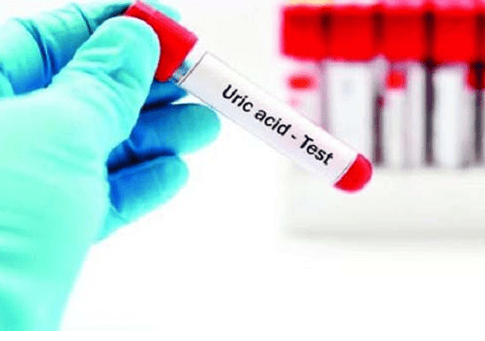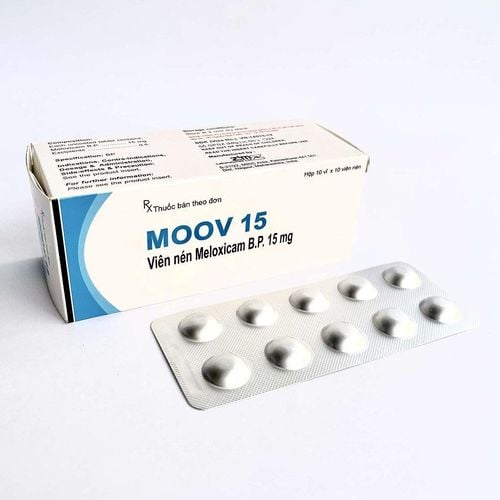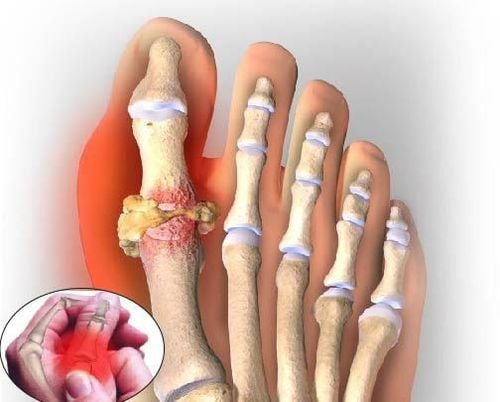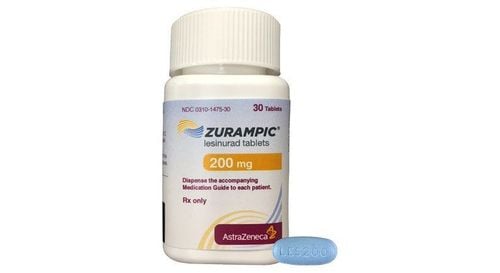This is an automatically translated article.
Uric acid is a metabolic product that occurs naturally in the human body. Increased uric acid is due to a disorder of purine metabolism, susceptible subjects are adults, especially the elderly.1. What is blood uric acid?
In the human body, blood uric acid has endogenous and exogenous origin. When cells die, their nucleus will be destroyed and converted into endogenous uric acid. On the other hand, uric acid derived from food such as meat, fish or some other metabolic pathway is of exogenous origin. Every day, excess uric acid will be eliminated from the body through urine (about 80%) and 20% through the digestive tract and sweat.Normally, blood uric acid levels are around 420 micromol/liter in men and 360 micromol/liter in women. If the concentration exceeds this allowable threshold, it will be called hyperuricemia.
Trắc nghiệm: Bạn có hiểu đúng về huyết áp cao không?
Huyết áp cao còn được gọi là kẻ giết người thầm lặng vì bệnh thường không có triệu chứng. Thiếu hụt kiến thức về huyết áp cao có thể làm cho tình trạng bệnh trở nên trầm trọng hơn. Dưới đây là những câu hỏi trắc nghiệm vui giúp bạn hiểu đúng về bệnh cao huyết áp.2. Causes of hyperuricemia
In fact, there are many possible causes for increased uric acid in the blood such as:Genetic factors: Although rare, genetic conditions or problems with the metabolism can also occur. may be the cause of the increase in uric acid in the blood of the patient.
Scientific studies have shown that Lesch-Nyhan syndrome (a problem of inborn purine metabolism in humans) is caused by a defect in a gene that makes a protein that is important in the body to get rid of acid. uric acid out of the body is called hypoxanthine phosphoribosyltransferase 1 or HPRT1. Without this enzyme, the body will increase uric acid in the blood and cause gout, kidney damage, bladder or nerve problems.

Bệnh gout có thể làm tăng Acid uric máu
Cancer patients undergoing chemotherapy can also increase blood uric acid due to tumor cleavage syndrome. This syndrome occurs in individuals with a large tumor burden, and chemotherapy causes large numbers of cancer cells to die immediately, with the release of cell endoplasm into the bloodstream, which is the main cause of death. causes an increase in uric acid in the blood.
Decreased excretion and elimination of uric acid: Normally, a decrease in uric acid excretion is a mechanism to create uric acid levels in the body, when there is a problem with the reduction of uric acid excretion from the body, it will cause the body to increase uric acid in the blood. This mostly occurs in people with chronic kidney disease.
The reason people with chronic kidney disease are often prone to hyperuricemia is because over time the kidneys will lose the ability to filter and remove waste products from the body. Because uric acid is filtered by the kidneys and excreted in the urine, if the kidneys are not working properly, uric acid will not be eliminated from the body and lead to an increase in uric acid levels in the blood.
In addition, metabolic or endocrine diseases can also reduce uric acid excretion.
Unscientific diet: In fact, there are many foods that contain a high amount of purine, if people eat them too much, it can contribute to increasing uric acid in the blood. The foods can be animal organs, poultry, red meat, fish, sardines, yeast, anchovies, beer...
On the other hand, excessive dieting, strenuous exercise also have can increase blood uric acid and reduce excretion, because the body will break down energy on its own while the kidneys cannot excrete uric acid effectively.
Other causes: High blood sugar level; Hypothyroidism ; Use of alcohol; certain medicines, especially those for heart disease; High Blood Pressure; Fat; Lead exposure; Pesticide exposure.
3. Diagnosis of hyperuricemia
To determine whether the patient has increased uric acid or not, the doctor will order blood and urine tests. In addition, if you have symptoms of gout, your doctor will likely test for any fluid buildup in your joints by draining fluid from the joint to check for uric acid crystals. The presence of uric acid crystals is a sign of gout.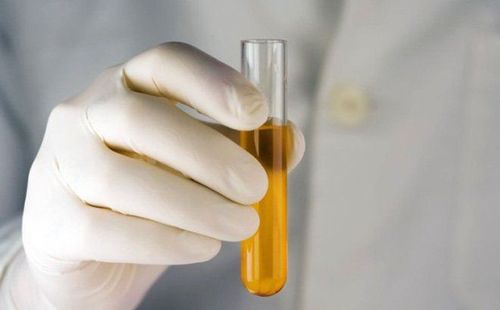
Xét nghiệm nước tiểu nhằm xác định người bệnh có bị tăng acid uric máu
4. How to treat increased uric acid in the blood?
To be able to give the most accurate treatment plan for hyperuricemia, the doctor will first find out the cause of this condition. If the patient has increased uric acid in the blood without any specific symptoms, the blood uric acid level is less than 10mg/dl, the patient does not need treatment, however, it is necessary to have a suitable diet to keep the body healthy. may not produce more uric acid.In case the patient has hyperuricemia above 12mg/dl, facing the risk of cardiovascular disease, it is necessary to use uric acid-lowering drugs.
In cases where cancer patients have too much cell destruction and acute uric acid production appears due to chemotherapy or radiation therapy, the doctor may prescribe prophylactic therapy for hyperuricemia to avoid acute renal failure due to increased urate crystal deposition in the renal tubules.
In special cases, patients who often have increased uric acid in the blood but are resistant to dietary measures or have a history of gout, kidney with increased uric acid in the blood, kidney damage, need to Using uric acid-reducing drugs as prescribed by the doctor, the patient must absolutely not self-medicate.
Please dial HOTLINE for more information or register for an appointment HERE. Download MyVinmec app to make appointments faster and to manage your bookings easily.




